Maria Yakimovna Lisiyuk
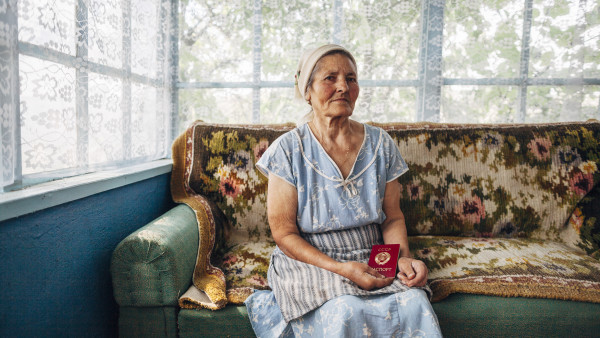
Maria Yakimovna Lisiyuk was born on the left shore of Nistru River seventy-two years ago in the village of Ghidirim. During Soviet times, the village had two kolkhozi (collective farms), one belonging to the Moldovan community and the other to the Ukrainian. Thanks to an extraordinary production of apples, the village became relatively wealthy but this spoiled relations amongst villagers, according to Maria: ‘Everyone, even absolutely distant people were like brothers and sisters, so sincere and good. Now people need to own and never know when it is enough.’ A Ukrainian native speaker, Maria is nostalgic about the past and thinks Transnistria and Moldova should look eastward towards the Customs Union project so strongly desired by Vladimir Putin.
Lidia Davydovna Tzernikel
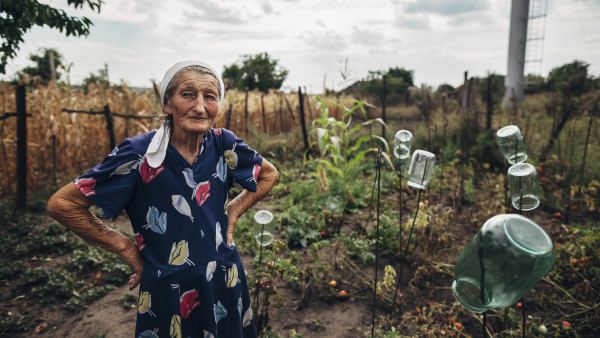
Lidia Davydovna Tzernikel was born in 1939 in a small village in Dnepropetrovsk region, Ukraine. She is a Black Sea German, member of a German-speaking ethnic group which established colonies in the Bessarabian and Black Sea regions of the Russian empire during the nineteenth century. Lidia was deported during World War II together with all the members of her family to Kazakhstan, as the Soviet authorities feared that, due to their ancestry, they could have supported the advance of Nazi Germany. She spent twenty years in Central Asia before moving to Karmanovo in 1965, a rural village in Transnistria, with her husband. Lidia recounts her adventurous story and explains what it means to feel German in contemporary Moldova: ‘I am German; this is what I would write. I will never renounce to it.’
Ruslan Nicolaevich Otrac
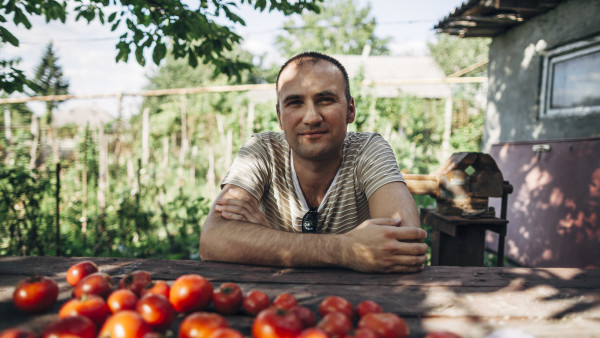
Ruslan Nicolaevich Otrac lives in Rîbnița, Transnistria. As the economic crisis caused the factory he worked in for many years to come to a standstill, he recently decided to migrate to Canada with his wife and his two daughters. Migration is nothing new in his family: his wife was born in Georgia but was forced to escape the war in the 1990s and relocated first in Ukraine, then in Moldova. Ruslan talks about how it feels to live in an unrecognised territory and his expectations for the life of his family as migrants overseas. He is confident that they will be able to have a happy life in Canada. A native Russian speaker from a mixed Ukrainian-Moldovan family, when speaking about Moldovan citizens sharing a similar background he says: ‘We are all citizens of the former Soviet Union and we are treated as though we are Russians.’
Eugenia Halus
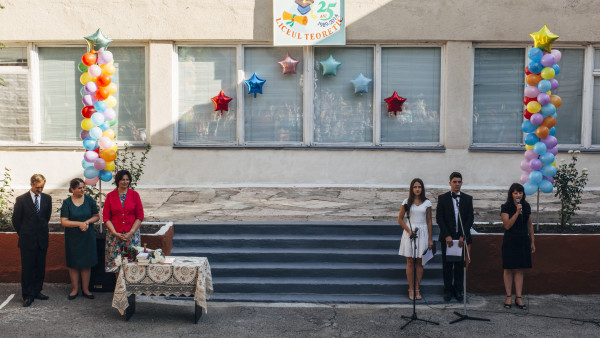
Eugenia Halus is the director of Evrika Theoretical School in Rîbnița, Transnistria. It is one of eight schools in the Transnistrian region where lessons are kept in Romanian. These schools are seen with hostility by the self-proclaimed government of de facto independent Transnistria and are only just tolerated by the pro-Russian authorities. A proud Moldovan, Eugenia speaks about the often troubled life of Romanian-speaking pupils and teachers on the left bank of Nistru River. ‘If this Transnistrian regime hadn't been supported by Russia, officials in Tiraspol and Chișinău would have been closer by now,’ she says.
Father Igor Rosca
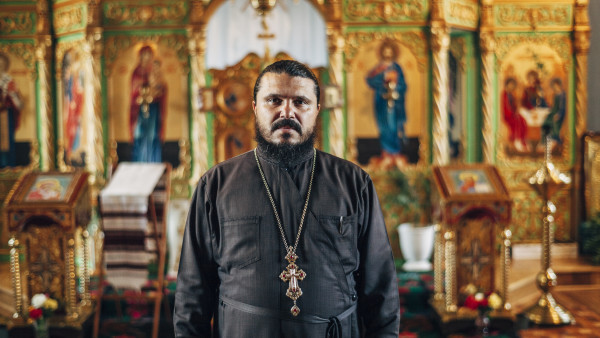
Father Igor Rosca was born in Burlanesti, northwest Moldova, in 1974 and became the priest of Fetesti village in 2000. During his youth, while Moldova was still ‘under foreign domination’, as Father Igor says, attending a mass or even owning a Bible was seen with suspicion by the authorities. Despite this, he developed strong religious feelings and, in 1993, he went to the Chitcani Monastery to study Theology. After being ordained priest, he decided to settle down in the village of Fetesti, nearby his hometown. His dream was to build a church on the premises where a wooden church, administered before WWII by a Romanian priest but completely destroyed during Soviet times, once stood. Father Igor is proud of having built this church, fulfilling his dream: ‘I wanted to build the church right here, where our dear ancestors started it.’ Nevertheless he says that when there was less freedom, people were more attached to religion. Nowadays, some people go to church ‘out of faith, some do it because this is how you are supposed to behave.’
Anna Zekhova
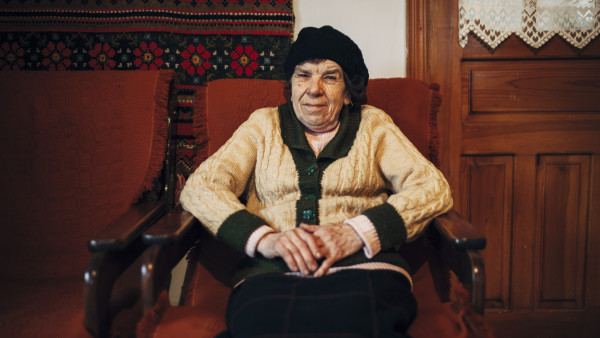
Anna Zekhova, a former journalist, in 1969 was one of the very first people to write in Gagauz language in a newspaper. She recollects how she became a journalist almost by chance, after returning from a work experience in Siberia in 1965. Anna, a proud Gagauz woman who has spent most of her life in Comrat, the main city of Gagauzia, speaks about how her family of humble origins, composed by poor, illiterate peasants was helped and dignified by the Soviet state. Anna is afflicted by the dire current economic situation of Moldova which is causing a haemorrhage of people leaving to find work abroad: ‘Now jobs are the most important things to people. That is not good, that is not right. That is going against human values.’
Lyudmila Marin-Karachoban
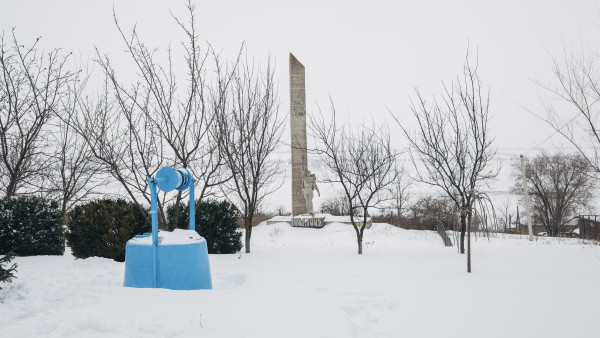
Lyudmila Marin-Karachoban is the director of the National Gagauz Museum in Beșalma, Gagauzia. The ethnographic museum was founded in 1966 by her late father, Dmitry Karachoban. He was a Gagauz poet, artist and teacher who dedicated most of his life to the rediscovery of the traditions of this nation within a nation. Lyudmila tells the story of the museum with anecdotes of the life of her father, a revered person throughout the region. She is afraid Gagauzia may be at risk of disappearance due to the opening of the Moldovan society towards the West and Europe and because of migration. ‘Why did we survive until now? Because there was unity, there was a homeland that kept us enclosed.’
Artiom Zavadovsky
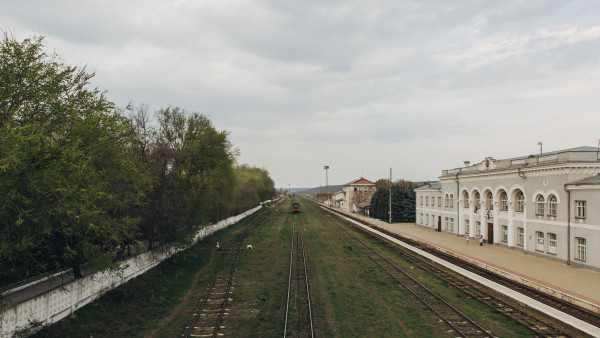
Artiom Zavadovsky was born in Balti, the second biggest city in Moldova and now works for GENDERDOC-M Information Centre in Chisinau. GENDERDOC-M is the first and only organisation advocating for the rights of LGBT people in Moldova. LGBT rights are starting to be recognised in the legislation of the Republic of Moldova and, despite a generally conservative attitude, things are slowly but constantly improving. This is partly thanks to the lobbying of the European Union and public initiatives such as the Gay Pride parade, attracting a relatively small but increasing number of people year after year. The dullness of the political panorama is of particular concern for the youth, says Artiom. ‘Politicians are the same, no matter the colour of their party or what platform they think they represent. They are united around different tycoons, influential personalities and businessmen who seek their own interests. They do represent a little part of the society, the rich and the ones that already have access to many sources, often through violating the law and corruption.’
Marco Povero
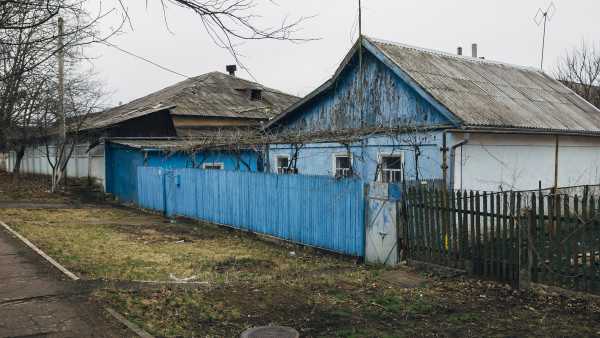
Marco Povero was born in Italy but he has been working in Moldova for the last three years. He is the project coordinator for Social Mission Diaconia, an organisation that is addressing the needs of the most vulnerable people in the country, mostly the elderly, women and children. Diaconia is the social body of the Metropolis of Bessarabia which is the Romanian Orthodox Church in Moldova. Poverty is widespread in the countryside but a sense of community is still strong and pervasive in the villages. Elderly people, often alone as a consequence of the migration of family members, receive the support of other villagers. On the contrary, in cities such as Chisinau, there is often no safety net for pensioners who sometimes have to survive on basic pensions (800-100 lei, 40-50 euro). Marco has been observing how the international cooperation network works, which sometimes seems to be the true, effective welfare state of Moldova, and shares his ideas with us.
‘Thank God, We Were Living Back Then’. Besalma And The Gagauz Heritage
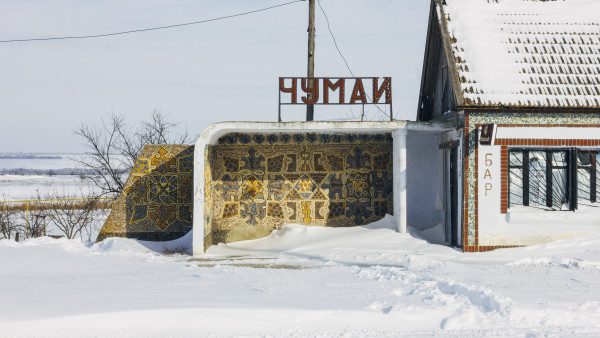
Beșalma is a village almost entirely inhabited by Gagauz people. Elena Gheorgievna Ceakir, an elderly Gagauz woman, vividly remembers how the village looked in the past: she worked all her life in the nearby fields. Elena learned how to sing at a young age and starts singing a few traditional songs in front of us, whilst untangling a ball of wool.
Drinking with the Dead. A Religious Celebration in the Town of Soroca
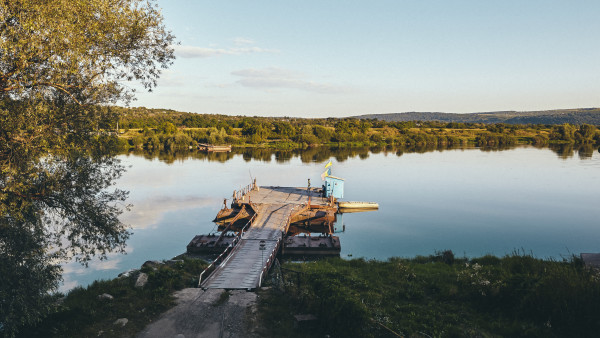
Soroca is a town in northeast Moldova, sitting at the border with Ukraine, on the right shore of the Nistru River. It is home to a large community of Moldovan Roma people. Each sixth of August of the Julian calendar, an important religious ritual takes place here during the celebration for the Transfiguration of Jesus.
A Forgotten History: the Jews of Moldova
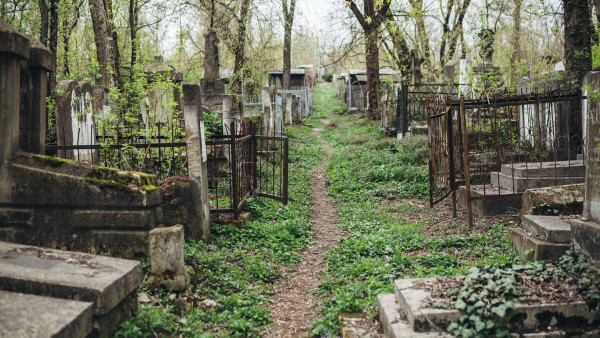
A once thriving community, the Jewish population of Moldova has almost completely disappeared, first due to Nazi persecution, secondly because of the migration towards Israel during the collapse of the Soviet Union. Discovering the Jewish architectural heritage throughout the country, made of abandoned cemeteries and crumbling synagogues, is an opportunity to follow the traces of an often tragic history.
Emigrating to Italy: the Women of Taraclia de Salcie
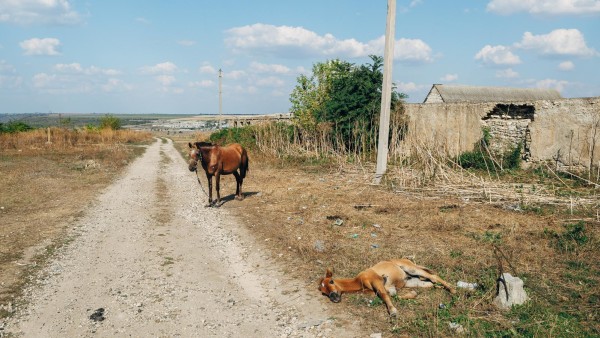
Taraclia de Salcie is a village situated twenty-six kilometres from Cahul, Southern Moldova. Lidia Topala and Alexandra Vrabie's stories tell about a destiny common to many Moldovan women: they both went to work abroad, in Italy, in order to improve their lives and those of their families back home.
A World War II Tragedy. Albota de Sus, a Bessarabian German Village in Moldova
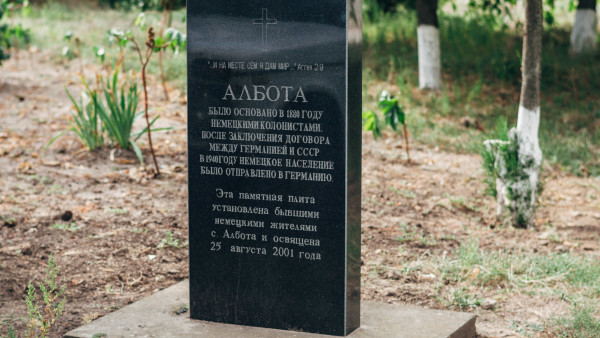
Victor Piculschi has been the mayor of Albota de Sus since 1984. His village has an almost forgotten history: it was exclusively inhabited by a Bessarabian German community before the Second World War. It was a German-speaking ethnic group that established colonies in the Bessarabian region of the Russian empire (currently Moldova and the Budjak region of Ukraine) during the nineteenth century.
The True Essence of the Country: a Family Gathering in Opaci
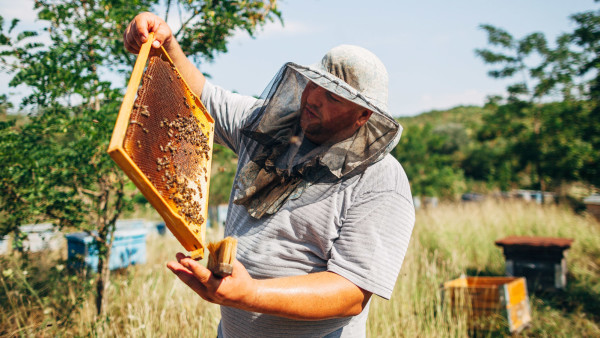
Opaci is a village outside the town of Causeni. In an almost idyllic rural landscape, the first anniversary of a christening is the occasion for a family gathering and a celebration of true Moldovan values.
Photographs From a Glorious Past. Moscovei and the Decline of a Town
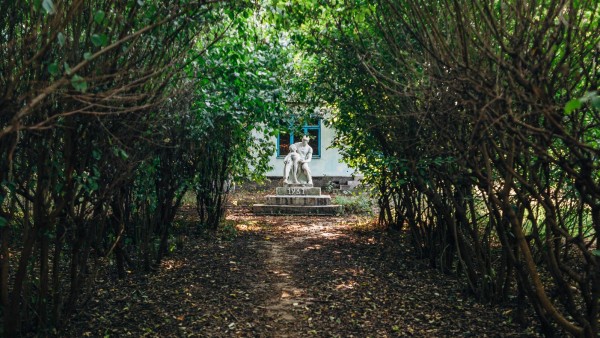
The town of Moscovei, Cahul district, is blighted by the usual problems common to small centres throughout Moldova: a lack of attractions and facilities which has gradually pushed the best generations away. It has not always been like today, though. During Soviet times, as mayor Nicolai Bucicovar says, ‘Moscovei was a prosperous place.’
Cahul: Past Memories at the Border with Europe
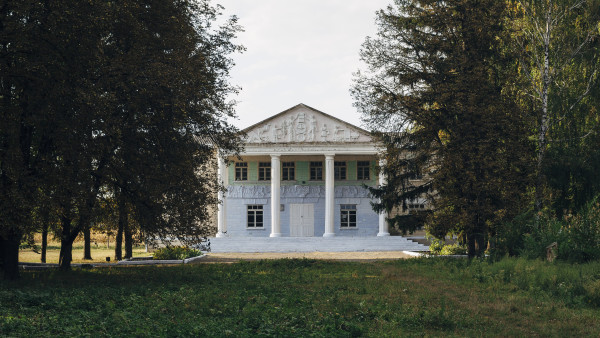
Cahul is the largest city in Southern Moldova. It sits in a privileged position, being just a few kilometres away from the Romania-Moldova border. Sergey Jernovoi and Fiodor Pascal, journalists at the local paper Cahul Express, describe how their life in the city has changed during the past two decades and what it means for them to be Moldovan citizens today.
Along the Railways of Moldova
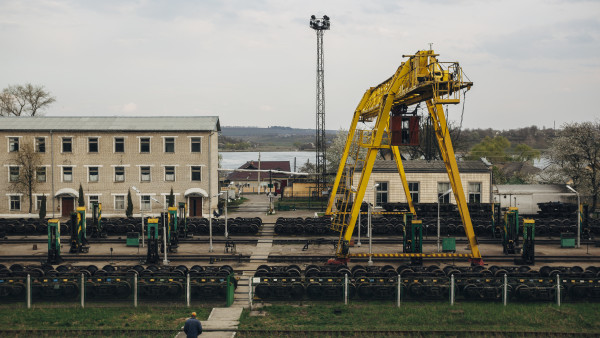
Ungheni station, Moldova-Romania border. Moldova still retains the old Soviet train gauge, one of the largest in the world. Because of this, the Bucharest-Chisinau and Chisinau-Bucharest night trains have to wait for a long time at the border due to wheels substitution.
From Kurgan to Paris: a Family of Migrants in Lopatnic
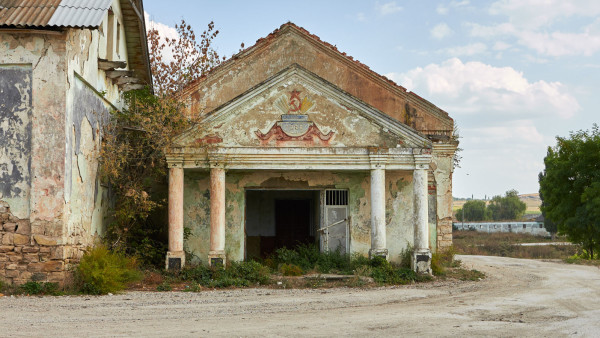
Lopatnic is a typical Moldovan village, situated in the northwest of the country. During the last decade a large number of people from Lopatnic and the neighbouring villages decided to migrate to France in search of work and better living conditions. Ion and Valentina Ciobanu share their story and that of their sons, both migrants in the Paris region.
Pride and Disillusion in Balti, the Second Largest City in Moldova
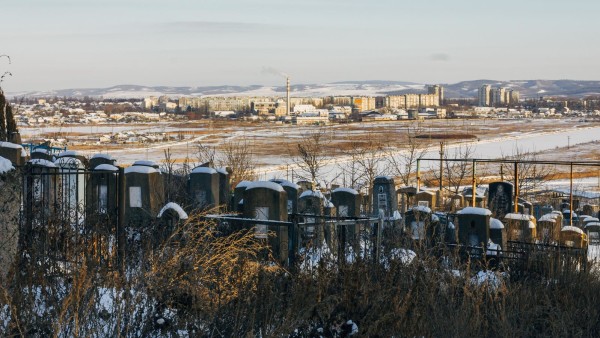
Balti is the largest city in Northern Moldova. Up to 40% of the inhabitants consider themselves either Russians or Ukrainians. It is, therefore, common to hear both Romanian and Russian languages in the streets and shops of the centre. It is the site of several food manufacturing plants, but it has lost part of the industrial prominence it had under the Soviet Union. Some students of the Alecu Russo State University express their ideas about the current state of things in Moldova.
Human Rights and Rule of Law in Transnistria. An Interview with Ion Manole, Chairman of Promo-LEX
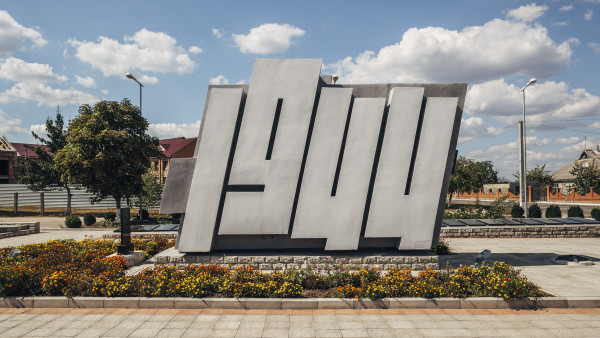
Promo-LEX is a non-governmental organisation based in Moldova since 2002. It is a prominent advocacy group whose primary activities focus on human rights in the Republic of Moldova, with particular attention to the Transnistrian region. Ion Manole is the chairman of Promo-LEX and, in a long interview, passionately recollects why conflict resolution in Transnistria is still far from being obtained but should be a priority for the Moldovan state in order to re-establish peace and social stability in the area.
Gender Empowerment in Moldova. The Case of Mara Woman
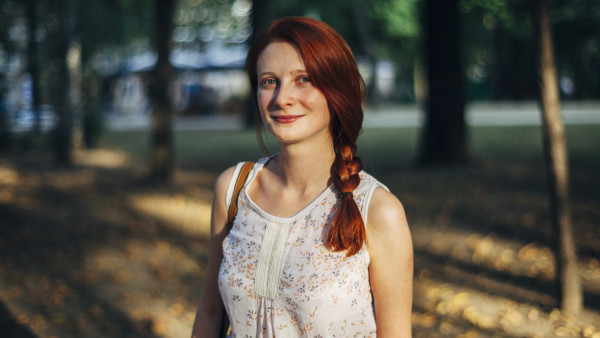
In 2013 Elena Scutaru started a business called Mara Woman in the rural area of Scoreni, Straseni district, only a few kilometres away from Chisinau. Her business employs local women to produce knitted clothes such as scarves, bags, hats and gloves. Elena wants to show that running a business in a rural area of Moldova is economically sustainable and a successful way to prevent the women of the villages from migrating abroad.
The Hidden Library of Schinoasa
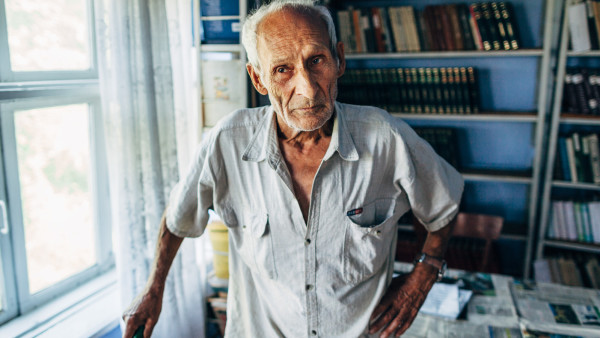
Schinoasa is a small, poverty-stricken Roma village situated in Calarasi district. Vasile Gheorghe Vornicoiu, a local elderly man, leads us to the discovery of a surprising place: the hidden library of the village with its uncertain destiny.
Europe or Russia? A Roma Story in Graseni
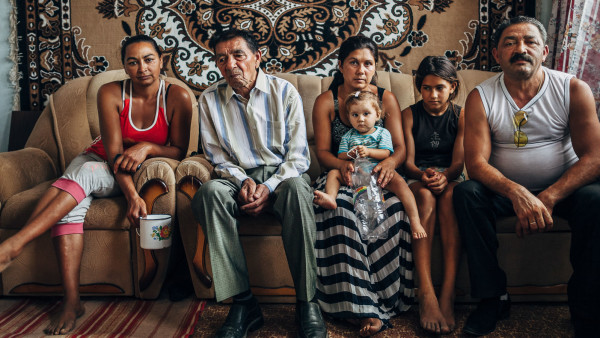
Graseni is a village in Ungheni district, not far from Pirlita, Central Moldova. It is divided in two by a road which once used to be an ethnic boundary between Moldovans and Roma. Many families are now mixed, but the settlement east of the road is still traditionally inhabited by Roma families and is called Faraonka. Part of the Dragan family lives here. Grigore, the new patriarchal figure in the family, talks with his siblings about the political expectations for the community of Graseni.
